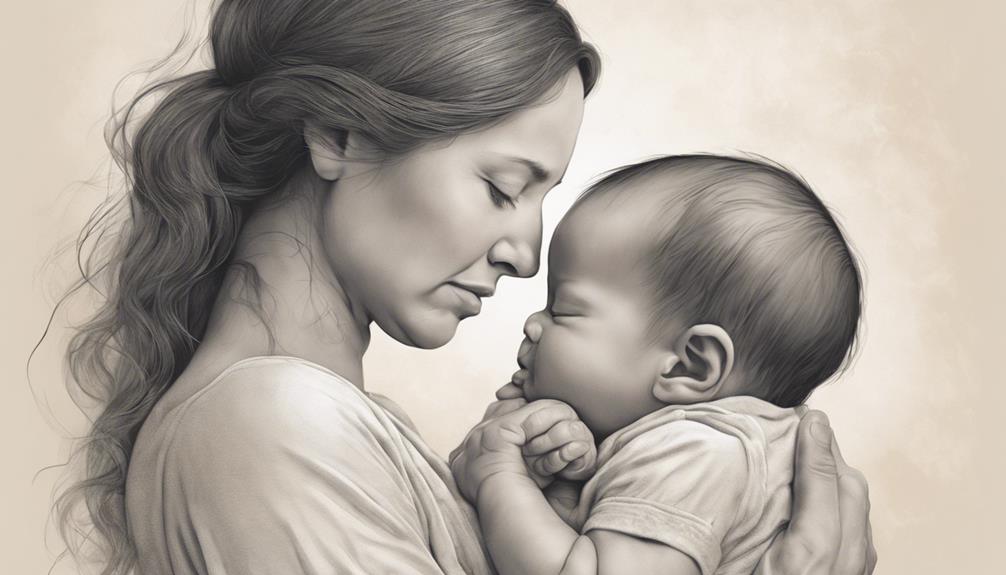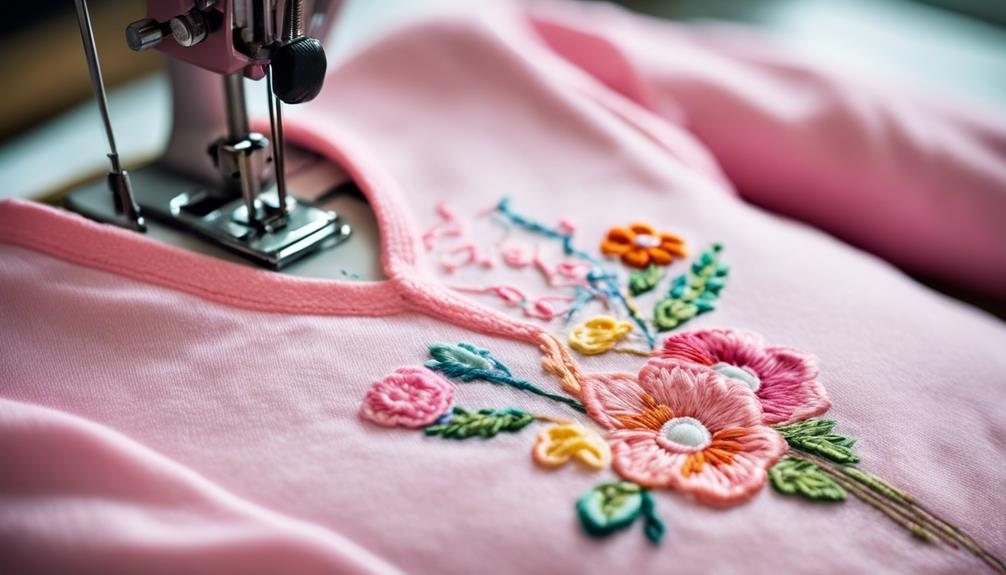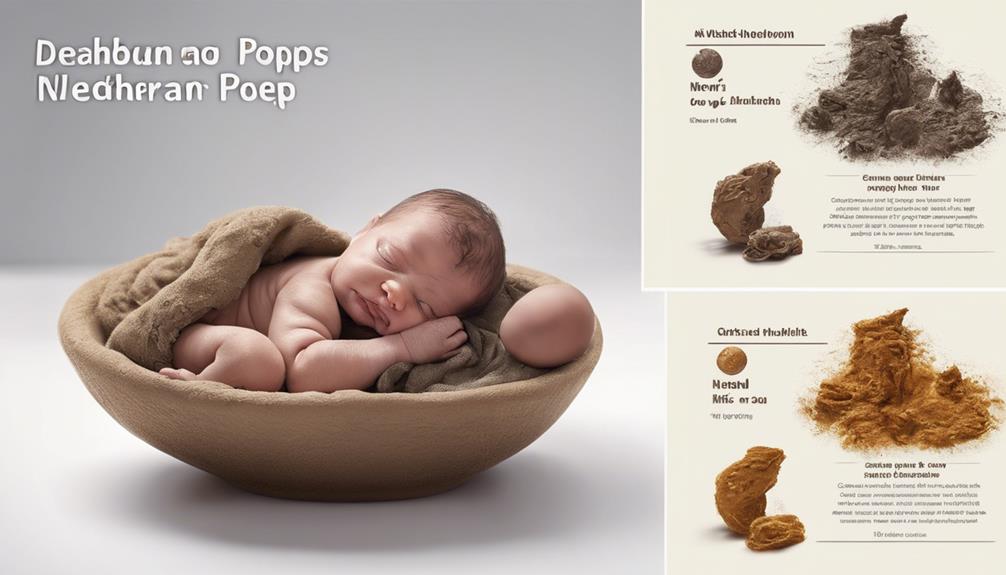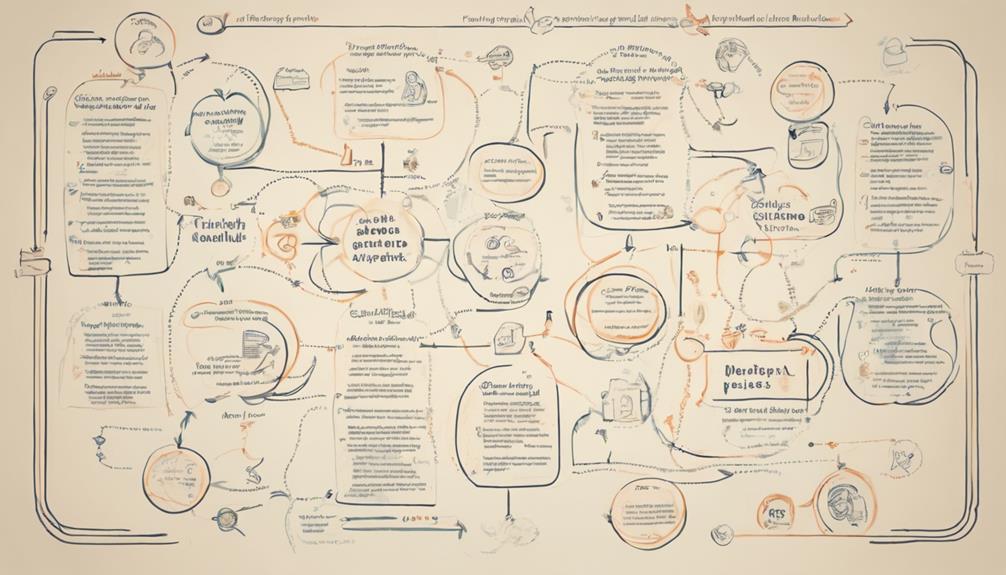When your newborn starts hiccuping, handling it can be a head-scratcher. Wondering what to do when those tiny hiccups disrupt your baby's tranquility? Stay tuned for practical steps and tips to pacify those pesky hiccups and restore peace to your little one.
From gentle burping techniques to the magic of a pacifier, you'll find simple solutions to ease your baby's discomfort. But what if these tricks don't work? Keep reading to discover when it's time to seek professional guidance and safeguard your baby's well-being.
Key Takeaways
- Burp your baby after feeding to release trapped gas and reduce hiccups.
- Offer a pacifier to relax respiratory muscles and alleviate hiccups.
- Keep your baby upright post-feeding for better digestion and hiccups prevention.
- Maintain a proper latch during feeding to minimize air intake and hiccups occurrence.
Understanding Newborn Hiccups
If your newborn is experiencing hiccups, understanding that these are caused by the diaphragm contracting involuntarily is pivotal. Hiccups in babies are common and often linked to factors like overfeeding, swallowing air while feeding, or even rapid feedings. When your baby gulps air, it can irritate the diaphragm, leading to these sudden contractions. While hiccups might seem concerning, especially for new parents, they're typically harmless and tend to go away on their own within a few minutes.
Feeding your baby in an upright position can help prevent hiccups by reducing the amount of air swallowed during feedings. Burping your baby frequently during feedings can also minimize the chances of hiccups due to trapped gas. Remember, unless the hiccups persist for an extended period or cause your baby distress, medical intervention is usually unnecessary. So, stay calm, comfort your little one, and know that these hiccups are just a normal part of your baby's development.
Simple Techniques to Relieve Hiccups

To help relieve your newborn's hiccups, consider simple techniques like burping them and offering a pacifier to relax their diaphragm. Here are some practical steps you can take to help your baby get rid of those pesky hiccups:
- Burp Your Baby: After feeding, hold your baby upright to burp them. This can help release any trapped gas in their digestive system, which might be causing the hiccups.
- Offer a Pacifier: Giving your baby a pacifier can help relax their respiratory muscles and diaphragm, potentially stopping the hiccups. The sucking motion can also help prevent excess air from getting trapped, which could be a factor in causing the hiccups.
- Keep Your Baby Upright After Feeding: Ensuring your baby stays in an upright position for some time after feeding can aid in proper digestion and reduce the likelihood of hiccups. Additionally, maintaining a proper latch during feeding can prevent your baby from swallowing excess air, hence minimizing the chances of hiccups.
Advanced Strategies for Hiccup Relief
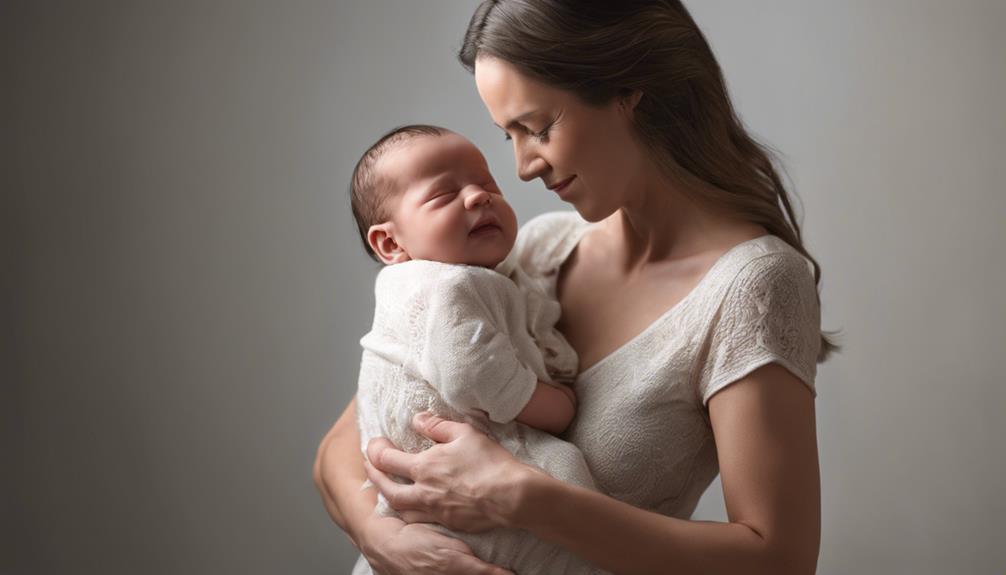
When comforting your newborn during hiccups, gently massaging their back can effectively stimulate the diaphragm and help alleviate the hiccups. This gentle massage can assist in relaxing the respiratory muscles and easing the spasms causing the hiccups.
Offering your baby small amounts of water in between feeds can also aid in relieving hiccups by helping to clear any excess gas that might be contributing to the problem. Additionally, utilizing soothing techniques such as swaying or gentle rocking motions can help calm your baby during these episodes.
Creating a peaceful and quiet environment while your baby has hiccups can promote relaxation and assist in easing the diaphragm. Exploring different feeding positions, like keeping your baby upright or semi-upright, may also help in preventing hiccups from occurring in the first place.
These relief techniques can provide comfort to your little one and help you both navigate through these common occurrences.
Preventing Future Hiccups

To prevent future hiccups in your newborn, adjusting their feeding positions to keep them upright is a simple and effective strategy. When your baby's hiccups don't seem to stop, make sure you follow these tips:
- Keep Your Baby Upright: Feeding your baby in an upright position can help prevent hiccups by reducing the chances of air getting trapped in their stomach.
- Feed Your Baby Smaller Amounts: Offering smaller, more frequent feedings can help in preventing hiccups, as overfeeding may lead to increased air intake.
- Gently Pat Your Baby: After feeding, gently pat your baby on the back to help release any trapped air that could cause hiccups. This can also aid in digestion and reduce the likelihood of hiccups.
When to Seek Professional Help
If your newborn's hiccups persist for more than 10-15 minutes despite trying soothing techniques, seeking professional help is advisable. While hiccups are common in newborns, excessive or prolonged hiccups may indicate an underlying issue that requires attention. Contact a healthcare provider if the hiccups are accompanied by other concerning symptoms such as vomiting, fever, or difficulty feeding. It is essential to consult a doctor if your newborn's hiccups interfere with their sleep patterns or overall comfort. Medical advice should be sought if the hiccups seem to be causing distress to your baby or impacting their daily routine. If you are unsure about the frequency or severity of your newborn's hiccups, it is recommended to consult a healthcare professional for guidance.
| Reasons to Seek Professional Help | Details |
|---|---|
| Prolonged hiccups | Lasting more than 10-15 minutes despite soothing efforts |
| Accompanying concerning symptoms | Vomiting, fever, or difficulty feeding along with hiccups |
| Disruption of sleep patterns | Hiccups affecting your newborn's rest and comfort |
| Signs of distress | Hiccups causing discomfort or distress to your baby |
| Uncertainty about frequency/severity | Seeking guidance from a healthcare provider for clarity |
Frequently Asked Questions
How Do I Relieve My Newborns Hiccups?
To relieve your newborn's hiccups, burp gently, offer a pacifier for comfort, and let them pass naturally in 5-10 minutes. Avoid gripe water without medical advice. Create a peaceful feeding atmosphere to prevent hiccups.
What Position Is Best for Newborn Hiccups?
To ease your newborn's hiccups, hold them close against your chest or in a semi-upright position. This helps release trapped air by relieving pressure on the diaphragm. Keeping them upright after feeding for 10-15 minutes can prevent or stop hiccups.
Should Babies Sit up or Lay Down for Hiccups?
When your baby has hiccups, sitting them up is better than laying them down. This helps gravity aid in digestion and prevents regurgitation. Keeping them upright for 30 minutes after feeding can ease discomfort.
Can I Put Newborn to Sleep With Hiccups?
You can absolutely put your newborn to sleep with hiccups. It's safe and normal. If your baby isn't bothered, let them snooze peacefully. Remember, hiccups are usually harmless and will pass on their own. Prioritize your baby's comfort.
Conclusion
To sum up, remember that hiccups are a common occurrence in newborns and can be easily managed with simple techniques like burping and using a pacifier.
Don't hesitate to reach out to your healthcare provider if you have any concerns about your baby's hiccups. Trust your instincts as a parent and know that you're equipped with the tools to soothe your little one's hiccups with confidence and care.
Keep calm and hiccup on!
